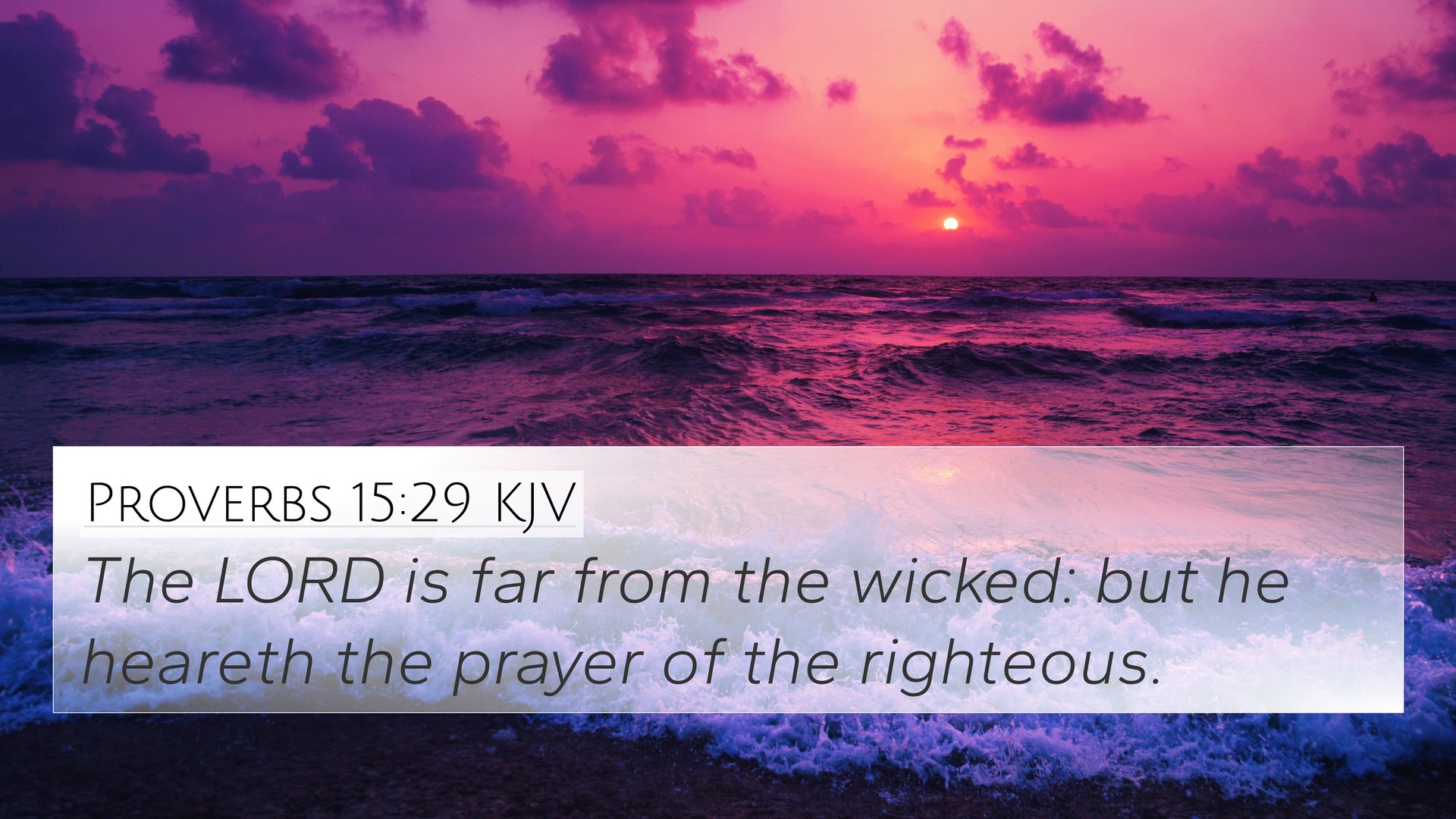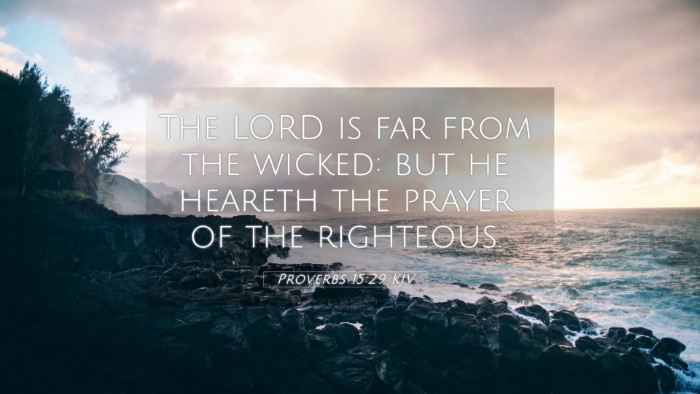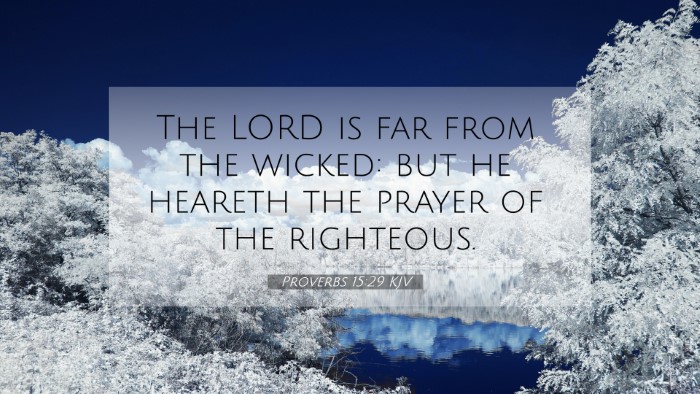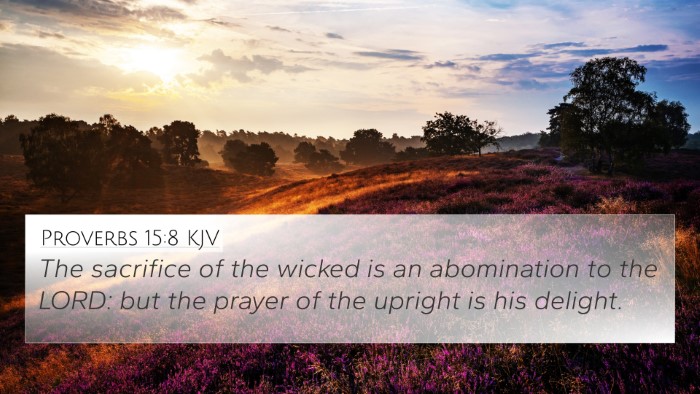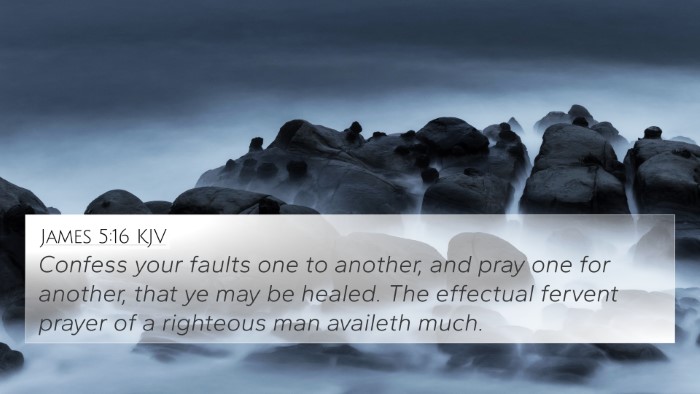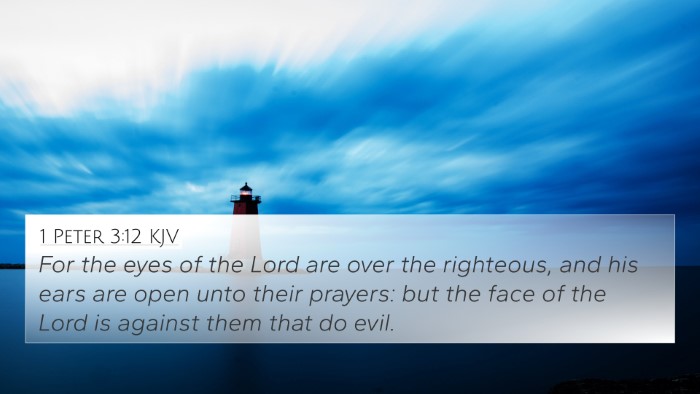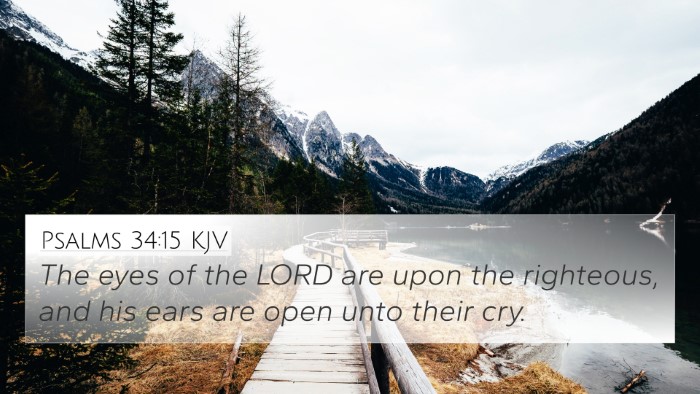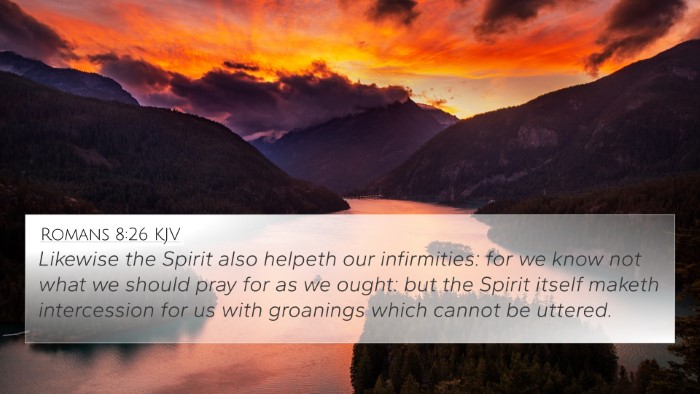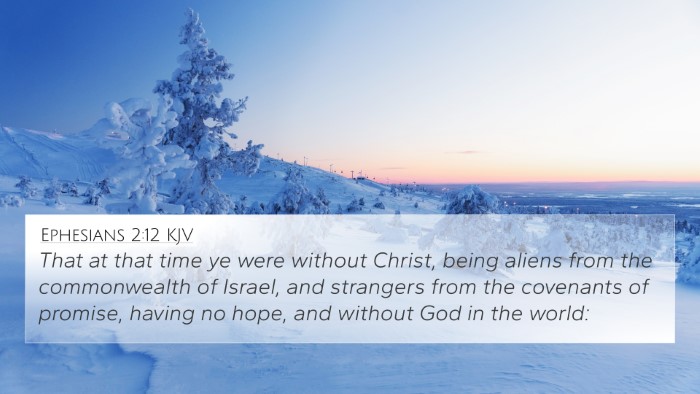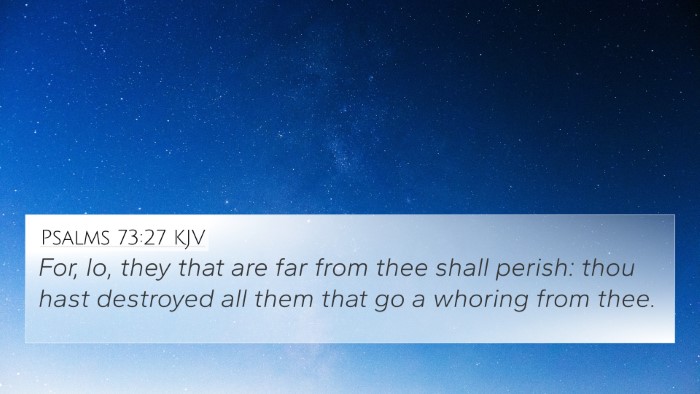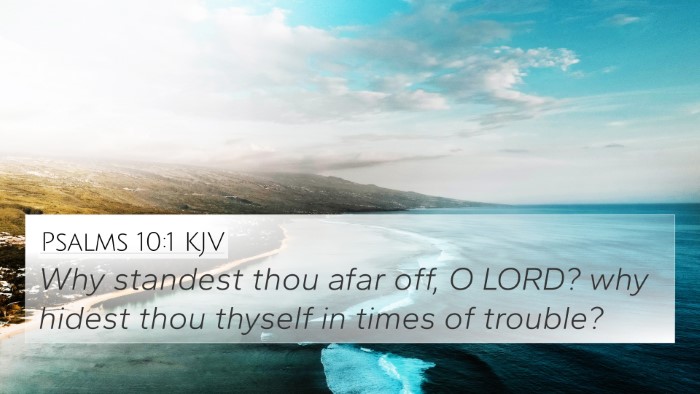Understanding Proverbs 15:29
Proverbs 15:29: "The LORD is far from the wicked: but he heareth the prayer of the righteous."
Summary of Meaning
Proverbs 15:29 addresses the relationship between God and individuals based on their moral standing. The verse contrasts the distance of the LORD from the wicked with His attention to the prayers of the righteous. This juxtaposition highlights the ideas of divine justice and mercy, emphasizing that righteousness brings one closer to God, while wickedness results in estrangement.
Insights from Public Domain Commentaries
-
Matthew Henry:
Henry explains that God’s attentiveness to the prayers of the righteous illustrates His desire for a relationship with those who pursue goodness. Conversely, the wicked, who choose to live outside of God’s will, find themselves distanced from divine favor.
-
Albert Barnes:
Barnes interprets the phrase "far from the wicked" as God's disfavor and disconnection from those who reject His ways. He emphasizes that God hears the prayers of the righteous, signifying comfort and assurance for the believer that their heartfelt petitions are acknowledged by God.
-
Adam Clarke:
Clarke notes that the wicked’s estrangement from God is inevitable due to their choices and actions. He stresses that true prayer, characterized by righteousness, invites God’s presence and response, showcasing the profound link between moral integrity and spiritual vitality.
Bible Verse Cross-References
This verse connects with several other biblical texts that elucidate similar themes of righteousness and divine response:
- Psalm 34:15: "The eyes of the LORD are upon the righteous, and his ears are open unto their cry."
- Isaiah 1:15: "And when ye spread forth your hands, I will hide mine eyes from you: yea, when ye make many prayers, I will not hear: your hands are full of blood."
- James 5:16: "The effectual fervent prayer of a righteous man availeth much."
- 1 Peter 3:12: "For the eyes of the Lord are over the righteous, and his ears are open unto their prayers: but the face of the Lord is against them that do evil."
- Proverbs 28:9: "He that turneth away his ear from hearing the law, even his prayer shall be abomination."
- John 9:31: "Now we know that God heareth not sinners: but if any man be a worshipper of God, and doeth his will, him he heareth."
- Psalms 145:18: "The LORD is nigh unto all them that call upon him, to all that call upon him in truth."
Thematic Bible Verse Connections
Proverbs 15:29 fosters inter-Biblical dialogues regarding the themes of prayer, morality, and divine attentiveness:
- The relationship between mankind and God: This verse emphasizes the principle that one's moral actions influence one’s relationship with God, tightly woven into the fabric of biblical theology.
- The power of prayer: Connected teachings throughout the Bible signal the importance of approaching God with a righteous heart, thereby encouraging believers to pursue integrity.
- The consequences of wickedness: There is a consistent reminder across scriptures that wickedness results in a disconnect from God, reinforcing the call towards holy living.
Comparative Bible Verse Analysis
Engaging in a comparative study of Proverbs 15:29 reveals a consistent biblical narrative about righteousness and divine reception through prayer. Notably,:
- Both Old and New Testaments underscore the divine initiative in listening to prayers directed by righteousness.
- The link between moral behavior and prayer efficacy showcases a theme that runs throughout the Gospels, particularly in the teachings of Jesus.
Tools for Bible Cross-Referencing
Understanding the connections found within biblical texts can be enhanced through various tools designed for cross-referencing:
- Bible Concordance: A comprehensive tool for locating keywords and phrases linked across scriptures.
- Cross-Reference Bible Study: This method encourages the exploration of related scriptural themes and verses.
- Bible Cross-Reference Guide: A valuable resource for identifying and exploring the relationships between different passages.
- Bible Reference Resources: Materials that assist in navigating the intricate webs of scriptural connections.
User Intent
For those seeking to dive deeper into the meanings and interconnections with Proverbs 15:29, here are some questions to guide exploration:
- What verses are related to Proverbs 15:29?
- How do Proverbs 15:29 and James 5:16 connect?
- What does Isaiah 1:15 reveal about divine listening?
- How do the teachings of Old Testament prophets compare to New Testament apostolic directions on prayer?
Conclusion
Proverbs 15:29 serves as a poignant reminder of the significance of righteousness in our relationship with God. The verse encourages believers to cultivate a moral life that aligns with divine expectations, assured that their prayers are heard and valued by the Lord. Through a thoughtful examination of cross-referenced scriptures, one can better understand the intricate dynamics at play between prayer, righteousness, and divine favor.
